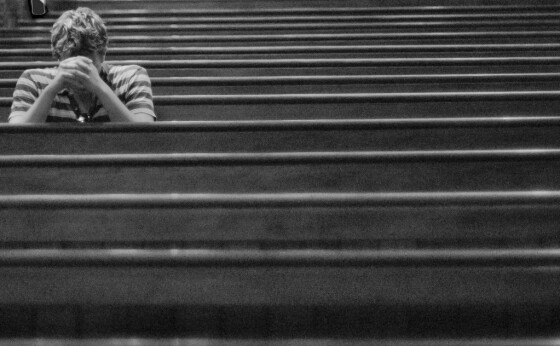 Parashat Va’et’hanan/Shabbat Nahamu
Parashat Va’et’hanan/Shabbat Nahamu
Deuteronomy 3:23-29
Of the many texts and verses in our portion that have taken special places in our tradition and liturgy (such as the Sh’ma and the Ten Commandments) one verse is recited at the end of every traditional prayer service, morning, noon and night. The last words of the first paragraph of `Alenu, the concluding prayer of each service, are this verse from our Torah portion: “And you shall know today, and you shall return it (va-hashevota) to your heart – that the Eternal is the Almighty God in the Heavens above and on the Earth below, none other (ayn `od).” (Deut. 4:39)
Our familiarity with this verse may, unfortunately, cause us to take it for granted. The simple point seems to be that we must take to heart that there is only One God and there are no other gods. This affirmation of monotheism is not the first and not the last to be found in our Torah (- remember the Sh’ma, again). But, if we pay attention to the verse’s choices of words, we may find its message far from simple.
One word to notice is one that follows the simple injunction to “know” that God is One. Yet the Torah is not content with our merely attaining this knowledge. Rather, we are also told to “return it – va-hashevota – to your heart.” Here we encounter one of this book’s central motifs, the importance of the feeling heart. (See Sparks 2012) And the verb va-hashevota speaks of repetitious effort, of returning and returning again. The knowledge and then the feeling of God’s Oneness is not a datum to be apprehended once and for all. It must be taken into the heart again and again. The knowledge and feeling will be fleeting. It will escape our hearts and we will have to bring it back again, to return it once more into our hearts. This is a continuous challenge.
Another telling choice of words in this verse is the last phrase, “ayn `od.” This phrase is commonly translated, “there is no other.” Understood in this way the phrase negates the possibility of any other gods and simply emphasizes the exclusive Being of One God. That is significant, of course. But if we look at the cantillation marks for those words, we notice that the two words are separated. Perhaps they are not expressing one thing about false gods, but, rather, two things about the One God. The first word is “ayn,” meaning “there isn’t (anything or anyone)”. This word is about total negation and emptiness. But the second word, “`od” is its very opposite – “more and more.” The first term is one of privation and resignation. But the second term is one of desire and exuberance. Perhaps we may see these separate terms as a continuous and alternating meditation on this One God. God is sometimes Nothingness Itself – ayn, and sometimes the Source of Never-ending Fullness and Abundance – “`od.” Each term is true, and it is the God of these simultaneous truths that we are commanded bring into our hearts, over and over again.
Shabbat Shalom
Rabbi David Greenstein
Subscribe to Rabbi Greenstein’s weekly d’var Torah
Image: “the prayer continued” by ☻☺ is licensed under CC BY-SA 2.0
Thank you to Sarita Eisenberg for suggesting the title and selecting an image for this Torah Sparks – Rabbi Greenstein
- Toby Stein: In Memoriam - Thu, Feb 8, 2024
- Faithfulness and Hope: Parashat Sh’lach - Thu, Jun 23, 2022
- Past Their Prime: Parashat B’ha`a lot’kha - Thu, Jun 16, 2022
